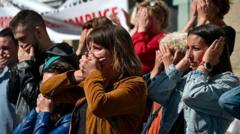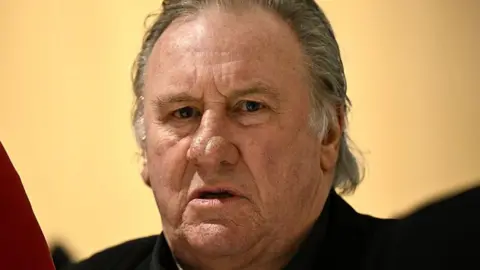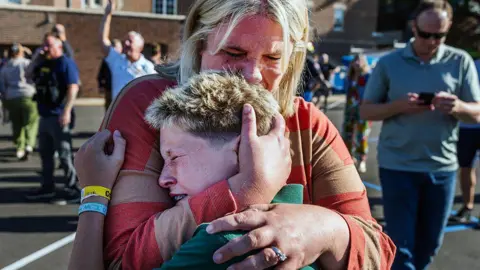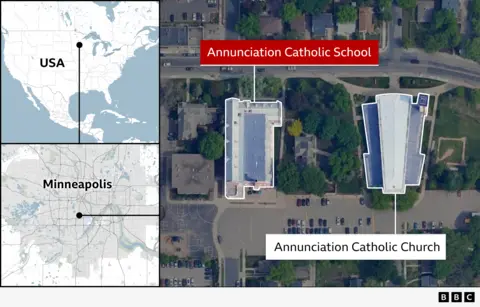In the coastal town of Vannes, Brittany, the trial of Joel Le Scouarnec, a retired surgeon accused of raping or assaulting 299 victims, most of them children, is wrapping up amidst mixed emotions. Initially anticipated as a pivotal moment for French society, the trial has evoked frustration among the victims and their advocates, who claim that their stories are being overlooked.
"We're angry and exhausted. Right now, hope feels distant. Society appears indifferent, which is terrifying," expressed Manon Lemoine, one of Le Scouarnec’s victims. With over fifty other survivors, Lemoine has initiated a campaign to pressure the French government, lamenting the lack of attention given to a case they believe should serve as a crucial example of deep-seated systemic failures.
Victims and supporters have questioned why there is no parliamentary commission overseeing the trial, as has occurred in other high-profile abuse cases. “We feel invisible,” they argue, contending that the sheer number of victims somehow dilutes their visibility in the public discourse.
While Le Scouarnec’s case has received less media attention than the Pelicot mass rape trial, observers speculate that the public's reluctance to confront such grim realities might be the root cause. Myriam Guedj-Benayoun, a lawyer representing several victims, criticized France’s silence surrounding child abuse, hinting at a societal 'omertà,' or code of silence, particularly regarding cases involving children.
Difficult testimonies outlined the disturbing nature of the crimes, which spanned from 1998 to 2014. Many victims have bravely come forward, even revealing their identities to shine a light on the heinous acts perpetrated against them. Their efforts aim to spur societal change in the way child abuse is perceived and addressed in France.
As the trial nears its conclusion, public interest seems to be building. Journalists, who initially observed from a distance, are now increasingly engaged as the trial highlights critical failings within the healthcare system that enabled Le Scouarnec’s continued abuse, despite prior warnings that went unheeded.
Comparisons to the Pelicot trial remain stark; in that case, a compelling central figure galvanized public interest and outrage. The absence of such a figure in the Le Scouarnec trial could explain the lack of mobilization around the victims’ cause. Yet, as some victims have realized personal truths about their past, a wave of support is beginning to emerge.
For many, the trial has represented a transformative experience, helping victims connect the dots of their suffering. “This trial is healing, even liberating,” Lemoine reflected, hopeful that their stance could mark a turning point for acknowledging and addressing child sexual abuse in France.
As Le Scouarnec faces inevitable consequences for his actions, advocates emphasize the need for sustained attention to prevent future abuse and push for societal accountability. “We must unite and act, or this trial will be in vain,” warns child rights activist Arnaud Gallais. The outcome of this case may redefine France's response to child abuse and influence how society chooses to address such an uncomfortable reality going forward.
"We're angry and exhausted. Right now, hope feels distant. Society appears indifferent, which is terrifying," expressed Manon Lemoine, one of Le Scouarnec’s victims. With over fifty other survivors, Lemoine has initiated a campaign to pressure the French government, lamenting the lack of attention given to a case they believe should serve as a crucial example of deep-seated systemic failures.
Victims and supporters have questioned why there is no parliamentary commission overseeing the trial, as has occurred in other high-profile abuse cases. “We feel invisible,” they argue, contending that the sheer number of victims somehow dilutes their visibility in the public discourse.
While Le Scouarnec’s case has received less media attention than the Pelicot mass rape trial, observers speculate that the public's reluctance to confront such grim realities might be the root cause. Myriam Guedj-Benayoun, a lawyer representing several victims, criticized France’s silence surrounding child abuse, hinting at a societal 'omertà,' or code of silence, particularly regarding cases involving children.
Difficult testimonies outlined the disturbing nature of the crimes, which spanned from 1998 to 2014. Many victims have bravely come forward, even revealing their identities to shine a light on the heinous acts perpetrated against them. Their efforts aim to spur societal change in the way child abuse is perceived and addressed in France.
As the trial nears its conclusion, public interest seems to be building. Journalists, who initially observed from a distance, are now increasingly engaged as the trial highlights critical failings within the healthcare system that enabled Le Scouarnec’s continued abuse, despite prior warnings that went unheeded.
Comparisons to the Pelicot trial remain stark; in that case, a compelling central figure galvanized public interest and outrage. The absence of such a figure in the Le Scouarnec trial could explain the lack of mobilization around the victims’ cause. Yet, as some victims have realized personal truths about their past, a wave of support is beginning to emerge.
For many, the trial has represented a transformative experience, helping victims connect the dots of their suffering. “This trial is healing, even liberating,” Lemoine reflected, hopeful that their stance could mark a turning point for acknowledging and addressing child sexual abuse in France.
As Le Scouarnec faces inevitable consequences for his actions, advocates emphasize the need for sustained attention to prevent future abuse and push for societal accountability. “We must unite and act, or this trial will be in vain,” warns child rights activist Arnaud Gallais. The outcome of this case may redefine France's response to child abuse and influence how society chooses to address such an uncomfortable reality going forward.




















